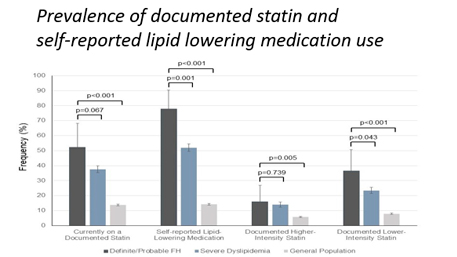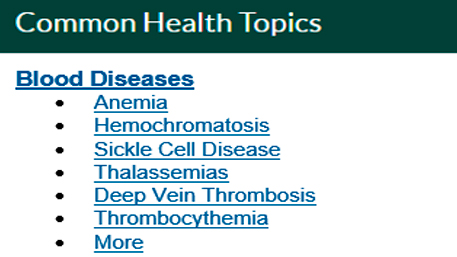Category:
Familial Hypercholesterolemia is Common and Undertreated in the United States

Familial hypercholesterolemia (FH) is an autosomal dominant genetic disorder that significantly increases the risk of atherosclerotic cardiovascular disease and premature deaths from heart attacks and stroke. The national prevalence of FH and rates of screening, awareness, and treatment with statins among individuals with FH and other causes of high lipid levels (dyslipidemias) remain largely unknown. Read More >
Posted on byLeap of Faith or Smart Investment? Early Integration of Whole Genome Sequencing in Healthcare Systems

Discovery science in genomic medicine has generally enjoyed longstanding large collaborations for data sharing and joint analyses. Synergies among collaborators has accelerated major advances in our understanding of the genetic basis of health and diseases. More recently, some of the same scientists have come together to aggregate data for more applied clinical research with NIH Read More >
Posted on byHLBS-PopOmics: NHLBI and CDC partner to launch a public health genomics knowledge base for heart, lung, blood, and sleep disorders

Timely and targeted dissemination of published research findings is an important step in accelerating the pace of turning discovery into health. To achieve this goal in human population genomics, the NHLBI has partnered with the CDC Office of Public Health Genomics (OPHG) to launch a heart, lung, blood, and sleep disorders knowledge base in population Read More >
Posted on bySaving a Million Hearts: One Heart at a Time!

Cardiovascular disease (CVD), principally ischemic heart disease and stroke, remains the leading cause of U.S. deaths for men and women and all races and ethnicities in spite of major progress in its prevention and treatment. CVD is also the greatest contributor to racial disparities in life expectancy. In 2012, 120 public and private partners and Read More >
Posted on byDear John, There’s no point in waiting any longer. Let’s call it quits…

In 1999, Dr. Francis Collins, director of the Human Genome Project, provided a bold vision for what the practice of genomic medicine might soon look like. Collins described the case of a hypothetical man named “John,” a 23 year-old smoker living a decade into the future in 2010. “His substantial risk of contracting lung cancer Read More >
Posted on by 4 Comments

